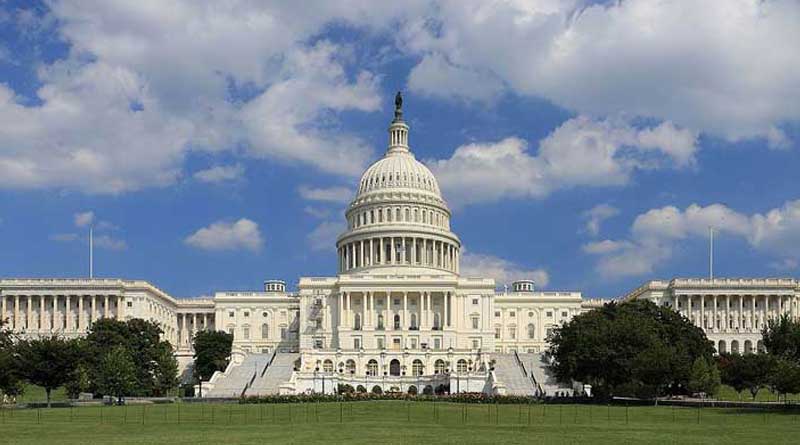The Center Square [By Ross Marchand]-
Under the shadow of an incoming Biden administration, members of Congress are working against the clock to cobble together yet another continuing resolution (CR) to keep the government funded and running. As has been too often the case in recent years, lawmakers have let procrastination and grandstanding get in the way of passing a responsible budget. And, despite a nine-year ban on earmarks, members of Congress will almost certainly try to sneak “goodies” into any eventual (last-minute) deal.
Instead of fiddling while taxpayer dollars burn, lawmakers must commit to fiscal accountability and responsibility and pass a responsible spending plan by the end of the year. And any new spending legislation must reflect core spending priorities, rather than giving unaccountable lame-duck members of Congress another shot at busting the budget.
On November 10, Senate Republicans introduced a sprawling $1.4 trillion spending package including $696 billion for the Department of Defense. There are some minor improvements in the Senate’s spending blueprint compared to the House plan (passed in July), such as the Senate version calling for one fewer Virginia-class submarine than the House’s proposal. But the Senate version calls for funding 96 F-35s for fiscal year 2021, which is five more than the House included and an astounding 17 more than asked for by the Pentagon.
It’s unclear why lawmakers are doubling down on the F-35 program, which continues to cannibalize its own supply chain and suffer basic performance issues despite its gargantuan price-tag. For an estimated lifetime cost north of $1.5 trillion, American taxpayers should expect the F-35 to run smoothly and make a significant contribution to America’s national defense. But as was noted in a July 22 House Oversight and Reform Committee hearing, the program is bogged down in supply chain snafus and the Autonomic Logistic Information System (used to track and order parts) is in deep trouble. Pilots flying F-35s have experienced barotrauma (i.e. severe sinus pain), making it difficult for the military to make the most of its already-troubled fleet.
Yet, because of America’s dysfunctional budgeting process, lawmakers are bound to get their way and sneak in significant spending increases to the F-35 program. And that’s just the tip of the iceberg, as the coronavirus rages on unabetted and claims roughly 1,000 lives every day. Lawmakers and politically connected, well-off individuals have used the rush for relief to their advantage, scoring low-interest loans and grants meant to benefit struggling small businesses. The cost of perpetual procrastination is that the top 1 percent will continue to nab taxpayer dollars with little scrutiny or accountability.
And if the lawmakers are unable to agree on a sustainable spending plan, another government shutdown will surely follow – about a month before the presumptive president-elect assumes office. If presumptive President-elect Biden’s campaign trail rhetoric is any indication, his administration will likely push for even more spending than is already on the table. While the high probability of continued Republican control in the Senate makes out-of-control spending less likely, the prospect of fiscal reform dwindles by the day.
A “compromise” between senators willing to spend $1.4 trillion to fund the government and an administration looking to spend far more than that won’t be pretty for taxpayers already struggling to get by. Instead of procrastinating and petty partisan infighting, the lame-duck Congress must work together to quickly pass a sensible spending agenda for the next fiscal year. Earmarks must be swept off the table, and lawmakers should identify significant spending items for elimination. Lawmakers such as Sens. James Lankford, R-Ok., and Rand Paul, R-Ky., have already assembled lists of unnecessary spending items that lawmakers can put on the chopping block right away.
Passing a CR is critical to keep the government running, and any spending bills that follow must be structured in a way that protects taxpayers and allows for members of Congress to be held accountable. Congress should start off the new political era on the right foot and finally end the spending shenanigans.
Ross Marchand is a senior fellow for the Taxpayers Protection Alliance.



